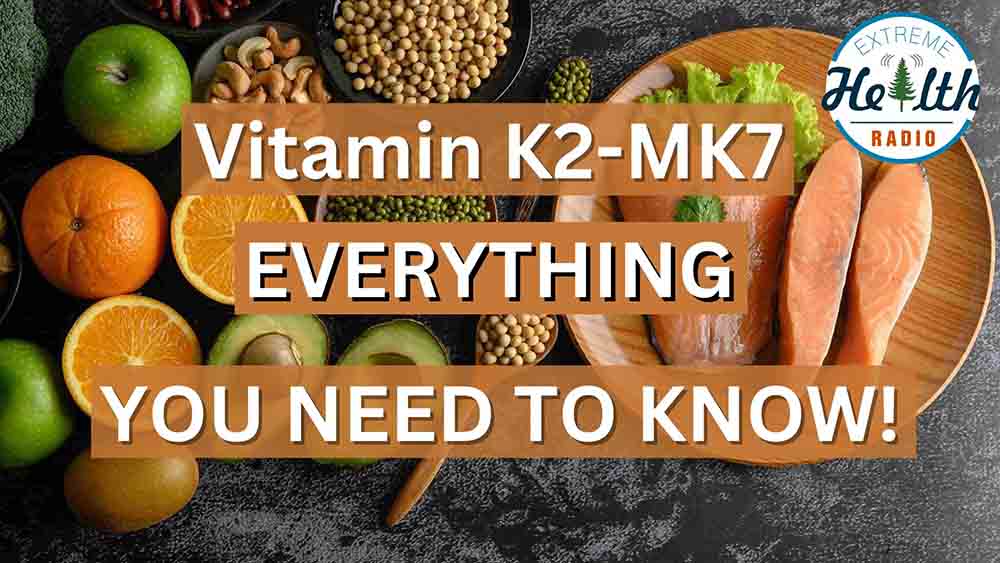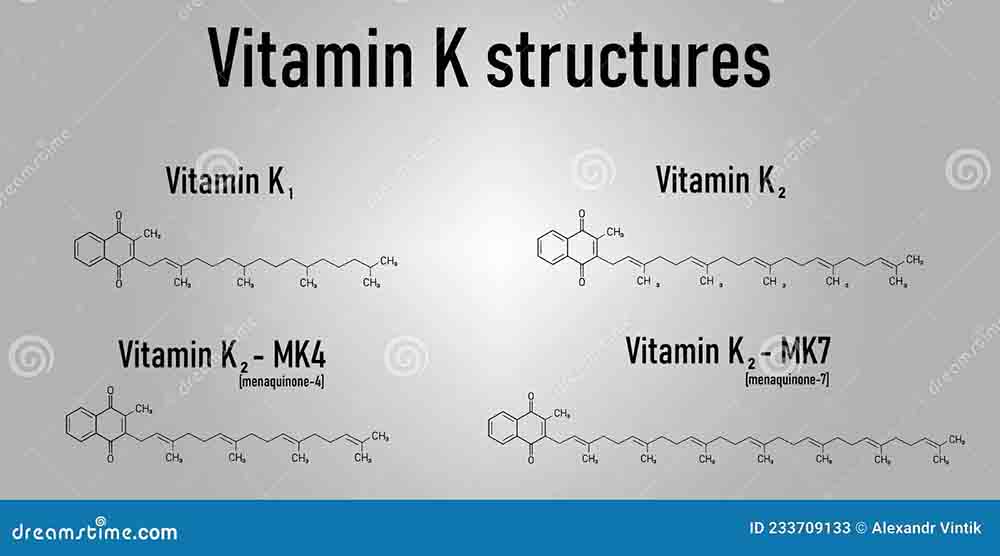
Vitamin K2 MK7 should be at the top of your supplement list only if you want to avoid, arterial calcification, coronary heart disease, cancer, osteoporosis, type II diabetes, and metabolic syndrome.
If you’re not worried about any of those disease, then no need to read this article. 🙂
But on the other hand if you’re about prevention (for the long term) and health optimization (for the short term) to improve every area of your health, then you’ll probably want to keep reading.
I first heard about Vitamin K2 MK7 around the year 2009 when I began questioning my 7 year 100% raw food vegan lifestyle. The book that started to make me question everything was called Nutrition and Physical Degeneration by a dentist named Dr. Weston A Price.
After reading that I began to wonder if following a 100% raw food vegan lifestyle for 50+ years was going to create any nutritional deficiencies in my body. If it did and did damage as a result, after 50 years of following that diet, would I be able to repair that damage?
That book really got me questioning everything. Turns out that in only 7 years I managed to do real damage to my oral health. When I went to the dentist they told me I had 7 cavities! Turns out what I had learned about how to prevent cavities as a raw food vegan wasn’t working to prevent cavities in my own mouth!
I wish I knew then what I know now about oral health and specifically how vitamin k2 mk7 plays a major role in the formation of cavities.
Anyway my own experience with a diet devoid of vitamin k2 mk7 shows me how important this fat soluble vitamin actually is.
Getting back to Nutrition and Physical Degeneration…
The main gist of that book is that it goes into detail about how our modern diet affects our health and physical structure. It compares our modern Western diet to the diets of indigenous populations around the world. Turns out that indigenous cultures had wide jaws, bigger mouths, stronger teeth, stronger bones and way less deformities and birth defects than we do today. The food they were eating and where they were eating it (outside) seems to be the main difference.
They were consuming lots of much needed vitamins and minerals in their diets whereas today, we get very little nutrition. To tie a bow on this concept the American farmers complained to congress in the 1930s that our soils were depleted. That was 90 years ago, how many minerals do you think we get in our food today?
Because I was so fascinated by how sick our modern culture is compared to ancient cultures we had Dr. Kate Rheaume-Bleue on our show to discuss Vitamin K2 MK7 in particular since she wrote a book called Vitamin K2 and the Calcium Paradox: How a Little-Known Vitamin Could Save Your Life.
If you’d like you can listen to that show below. I highly suggest you do that.
So that’s how I got interested in this unique fat soluble vitamin.
And that’s why I supplement vitamin k2 mk7 daily.
So let’s dive in a little further about vitamin k2 in the mk7 form and all of its benefits to our health.
Forms of Vitamin K
First let’s break down vitamin k and its forms…
Main Forms of Vitamin K
- Vitamin K1 (Phylloquinone):
- Found predominantly in green leafy vegetables like spinach, kale, and broccoli.
- Plays a primary role in blood clotting and is essential for bone health.
- Vitamin K2 (Menaquinone):
- Exists in several subtypes (MK-4 to MK-13) based on the length of their side chains.
- MK-4: Found in animal products like meat and dairy.
- MK-7: Present in fermented foods such as natto.
- Other forms like MK-8 and MK-9 are less common and typically found in cheeses.
- Vitamin K3 (Menadione):
- A synthetic form not commonly used due to its potential toxicity.
What Is Vitamin K2 MK7?

Vitamin K2 is actually a subtype of vitamin K, which is an essential vitamin for various bodily functions like blood clotting and bone health. This includes teeth because teeth are exposed bones. It exists in several forms, with the most popular being MK-4 and MK-7.
Here is a little summary of Vitamin K2 and MK-7:
- Vitamin K2: This vitamin is crucial for the carboxylation, or activation, of osteocalcin, a key protein in bone health. It helps regulate calcium deposition in the body, preventing calcium deposits in the arteries and promoting bone mineralization. Essentially Vitamin K2 puts calcium where it belongs (in bones) and removes it from where it doesn’t belong (soft tissues).
- MK-7 (Menaquinone-7): MK-7 is a specific form of Vitamin K2 that is more bioavailable than MK-4, meaning it is more efficiently absorbed and utilized by your body. It is produced by “friendly” bacteria and flora in your gut and is effective at lower doses compared to other forms of Vitamin K2. MK-7 has been shown to improve bone health and prevent coronary artery calcification. We’ll get more into that later.
In general, Vitamin K2, particularly in the MK-7 form, plays a key role in maintaining your bone health and preventing arterial calcification, making it one of the most important nutrients for daily supplementation, which is why I made that bold statement at the beginning of this article. 🙂
Even though I supplement it daily, I always like to give my readers food options because vitamins and minerals that are locked inside a food matrix are much healthier. If you can eat raw liver, then great but if you just can’t stomach it because of its consistency and flavor, then by all means supplement it.
Same goes with nattokinase. If you read my article titled 5 Powerful Nattokinase Benefits That Can Forever Change Your Health, you’ll probably do the same. Sometimes supplements are just more practical than the food they come from.
Anyway with that said, let’s dive into some foods high in vitamin k2 mk7…
8 Foods High in Vitamin K2 MK7
I try to get vitamin k2 mk7 in my diet daily, but I don’t always get there. Sometimes we run out of foods or sometimes we can’t get a certain food for a while and that’s why it’s much easier to supplement it than rely 100% on the foods. If I have any of the foods listed below at home, I’ll skip taking my vitamin k2 supplement. But if I’m out of any of these foods or don’t feel like eating them, then this is where supplementation really helps fill in your nutritional gaps.
Supplementing is also great for traveling or if you’re going out to dinner with friends and more rare social circumstances as well.
Food is always King and supplements are Queen. But more and more I’m relying on supplements for the many reasons I listed above.
With that said, here are some foods high in vitamin k2 mk7.
- Natto: A traditional Japanese dish made from fermented soybeans, which is the richest source of MK-7.
- Hard Cheeses: Cheeses like Gouda and Edam are particularly high in MK-7.
- Sauerkraut & Kimchee: A fermented cabbage dish, which is also a good source of MK-7.
- Kefir or Yogurt: Fermented full fat dairy products from grass-fed cows that provide MK-7.
- Eel: Offers a seafood source of MK-7.
- Chicken: A moderate source of MK-7, particularly in the thighs.
- Beef Liver: Contains moderate levels of MK-7.
- Egg Yolks: A good source of MK-7, especially from pasture-raised chickens.
6 Benefits of Vitamin K2 MK7
Now let’s dive into some of the really powerful health benefits of vitamin k2 mk7. Before we do though take a look at this table below.
| Condition | Vitamin K Form | Risk Reduction |
|---|---|---|
| All-Cause Mortality | K2 | 26% (Highest vs. Lowest Intake)3 |
| All-Cause Mortality | K1 | 36% (Highest vs. Lowest Intake)2 |
| Cancer | K1 | 46% (Highest vs. Lowest Intake)2 |
| Cancer, Advanced Prostate | K2 | 63% (Highest vs. Lowest Intake)7 |
| Cancer Death | K2 | 28% (Highest vs. Lowest Intake)54 |
| Coronary Artery Calcification | K2 | 20% (Highest vs. Lowest Intake)30 |
| Coronary Heart Disease | K1 | 21% (Highest vs. Lowest Intake)66 |
| Coronary Heart Disease | K2 | 9% lower risk for each 10 microgram/d increased intake67 |
| Coronary Heart Disease Mortality | K2 | 57% (Highest vs. Lowest Intake)3 |
| Metabolic Syndrome | K1 | 27% for having low HDL-cholesterol* 49% for having elevated triglycerides* 82% for having high blood sugar* (All Highest vs. Lowest Intake)68 |
| Type II Diabetes | K2 | 7% lower risk for each 10 microgram/d increased intake5 |
| Type II Diabetes | K1 | 17% reduction for each 100 microgram/d increased intake6 |
| Type II Diabetes | K1 | 51% with increased K1 intake vs. decreased or no change in intake6 |
1. Arterial Calcification
Vitamin K and Atherosclerosis
- Study Design: This research examined the role of matrix Gla protein, a Vitamin K-dependent protein, in inhibiting arterial calcification.
- Outcome/Conclusion: Matrix Gla protein was found to be activated only in the presence of sufficient Vitamin K. People with the highest intake of Vitamin K2 had a 57% lower risk of coronary heart disease compared to those with the lowest intake. – Source
Impact of Vitamin K2 on Coronary Artery Calcification in Women
- Study Design: A cohort study comparing women with varying levels of Vitamin K2 intake.
- Outcome/Conclusion: Women with the highest intake of Vitamin K2 had a 20% lower risk of coronary artery calcification compared to those with the lowest intake. No significant effect was found for Vitamin K1 in the same study. – Source
Vitamin K Supplementation in Reduces GLA protein
- Study Design: Double-blind randomized controlled trial with Vitamin K1 and K2 supplementation in postmenopausal women.
- Outcome/Conclusion: Supplementation with 180 and 360 micrograms of Vitamin K2 significantly reduced levels of inactive matrix Gla protein, indicating a lower risk of atherosclerosis with calcification. Placebo recipients showed no such effect. – Source
Effect of Vitamin K2 on Kidney Disease Patients with Hemodialysis
- Study Design: Randomized controlled trial involving 135 or 360 micrograms of Vitamin K2 in kidney disease patients on hemodialysis.
- Outcome/Conclusion: Vitamin K2 supplementation decreased the amount of inactive matrix Gla protein by 77% at the lower dose and 93% at the higher dose, suggesting a protective effect against arterial calcification. – Source
2. Coronary Heart Disease
Vitamin K Intake and Coronary Heart Disease Mortality
- Study Design: This study investigated the relationship between Vitamin K intake and coronary heart disease mortality in a large cohort.
- Outcome/Conclusion: Individuals with the highest intake of Vitamin K2 had a 57% lower risk of coronary heart disease mortality compared to those with the lowest intake. Vitamin K1 did not show a significant impact on coronary heart disease mortality in the same study. – Source
Vitamin K2 and Risk Reduction for Coronary Heart Disease
- Study Design: A prospective cohort study that analyzed dietary Vitamin K2 intake and its effects on coronary heart disease risk.
- Outcome/Conclusion: For every 10 microgram per day increase in Vitamin K2 intake, there was a 9% lower risk of developing coronary heart disease. This protective effect was not observed with Vitamin K1. – Source
Impact of Vitamin K2 on Coronary Heart Disease in Elderly Women
- Study Design: A study focusing on the elderly female population to assess the influence of Vitamin K2 on coronary heart disease.
- Outcome/Conclusion: Women with the highest intake of Vitamin K2 had a 21% lower risk of developing coronary heart disease compared to those with the lowest intake. – Source
3. Cancer
Vitamin K Intake and Cancer Risk
- Study Design: This study examined the relationship between Vitamin K intake and cancer risk in a large population cohort.
- Outcome/Conclusion: Individuals with the highest intake of Vitamin K1 had a 46% lower risk of developing cancer compared to those with the lowest intake. The protective effect was more pronounced in individuals with higher intake of Vitamin K2. – Source
Vitamin K2 and Advanced Prostate Cancer
- Study Design: A cohort study that analyzed the effect of Vitamin K2 on the incidence of advanced prostate cancer.
- Outcome/Conclusion: Men with the highest intake of Vitamin K2 had a 63% lower risk of advanced prostate cancer compared to those with the lowest intake. This study demonstrates a strong protective role of Vitamin K2 against prostate cancer. – Source
Vitamin K2 and Cancer Mortality
- Study Design: A prospective study on the impact of Vitamin K2 intake on cancer mortality.
- Outcome/Conclusion: Participants with the highest intake of Vitamin K2 had a 28% lower risk of cancer death compared to those with the lowest intake, highlighting Vitamin K2’s role in reducing cancer mortality. – Source
4. Osteoporosis
Vitamin K2 and Bone Mineral Density in Postmenopausal Women
- Study Design: A double-blind randomized controlled trial that evaluated the effects of Vitamin K2 supplementation on bone mineral density in postmenopausal women.
- Outcome/Conclusion: Women who received Vitamin K2 showed a significant increase in bone mineral density compared to the placebo group. This study suggests that Vitamin K2 plays a crucial role in maintaining bone health and reducing the risk of osteoporosis. – Source
Impact of Vitamin K2 Supplementation on Hip Bone Strength
- Study Design: A three-year randomized controlled study on the effect of Vitamin K2 on hip bone strength in postmenopausal women.
- Outcome/Conclusion: Vitamin K2 supplementation maintained hip bone strength and improved overall bone geometry, while the placebo group experienced a loss in hip bone strength. This indicates that Vitamin K2 supplementation can be effective in preventing osteoporosis in high-risk populations. – Source
Vitamin K2 and Bone Health in Osteoporotic Women
- Study Design: A study on the effect of Vitamin K2 (MK-7) on bone health and mineral content in women with pre-existing osteoporosis.
- Outcome/Conclusion: Supplementation with 45 mg of Vitamin K2 for 48 weeks significantly increased spinal bone mineral density and reduced inactive osteocalcin levels, demonstrating the potential of Vitamin K2 in treating osteoporosis. – Source
Vitamin K1 and K2 in Osteoporosis Prevention
- Study Design: A randomized controlled trial that compared the effects of Vitamin K1 and K2 supplementation on bone loss in postmenopausal women.
- Outcome/Conclusion: Both forms of Vitamin K contributed to reducing bone loss, but Vitamin K2 was more effective in increasing bone mineral content and density. This highlights the importance of Vitamin K2 for bone health and osteoporosis prevention. – Source
5. Type II Diabetes
Vitamin K2 and Insulin Sensitivity in Older Adults
- Study Design: A randomized controlled trial that assessed the impact of Vitamin K2 on insulin sensitivity in older adults at high risk for cardiovascular disease.
- Outcome/Conclusion: Higher dietary intake of Vitamin K2 was associated with a 7% reduction in the risk of developing Type 2 diabetes for each 10 microgram increase in intake. This indicates that Vitamin K2 can improve insulin sensitivity and reduce the risk of diabetes. – Source
Vitamin K1 and K2 Intake and Type 2 Diabetes Risk
- Study Design: A cohort study that evaluated the effects of Vitamin K1 and K2 intake on the risk of developing Type 2 diabetes.
- Outcome/Conclusion: The study found that a 17% reduction in the risk of developing Type 2 diabetes occurred for every 100 microgram per day increase in Vitamin K1 intake. However, Vitamin K2 had a stronger effect, reducing the risk by 7% for each 10 microgram increase. – Source
Effect of Vitamin K2 Supplementation on Insulin Sensitivity in Healthy Young Men
- Study Design: A four-week supplementation study involving healthy young men who received 30 mg of Vitamin K2 three times daily.
- Outcome/Conclusion: Supplementation significantly improved insulin sensitivity in the participants, suggesting that Vitamin K2 plays a role in enhancing glucose metabolism and preventing insulin resistance. – Source
Vitamin K and Insulin Resistance in Non-Diabetic Older Men
- Study Design: A three-year randomized controlled study that examined the effects of 500 micrograms of Vitamin K1 per day on insulin resistance in non-diabetic older men.
- Outcome/Conclusion: Supplementation with Vitamin K1 led to a significant reduction in insulin resistance compared to the control group, demonstrating the beneficial effects of Vitamin K in preventing Type 2 diabetes. – Source
6. Metabolic Syndrome
Vitamin K Intake and Risk of Metabolic Syndrome
- Study Design: A cohort study that examined the association between dietary Vitamin K intake and the risk of metabolic syndrome.
- Outcome/Conclusion: Participants with the highest intake of Vitamin K1 had a 27% lower risk of having low HDL-cholesterol, 49% lower risk of elevated triglycerides, and an 82% lower risk of high blood sugar compared to those with the lowest intake. These findings suggest that Vitamin K intake is beneficial in reducing the risk factors associated with metabolic syndrome. – Source
Vitamin K2 and Cardiovascular Risk Factors in Metabolic Syndrome
- Study Design: A cross-sectional study that analyzed the effects of Vitamin K2 on cardiovascular risk factors in individuals with metabolic syndrome.
- Outcome/Conclusion: Higher Vitamin K2 intake was associated with lower levels of inflammatory markers and better regulation of insulin resistance, which are important in managing metabolic syndrome. This suggests that Vitamin K2 can play a role in mitigating cardiovascular complications associated with metabolic syndrome. – Source
Impact of Vitamin K2 on Inflammatory Markers in Metabolic Syndrome
- Study Design: A study examining the impact of Vitamin K2 on inflammatory markers and cytokines in individuals with metabolic syndrome.
- Outcome/Conclusion: Vitamin K2 supplementation led to a significant reduction in pro-inflammatory cytokines and improved insulin sensitivity, highlighting its potential in managing inflammation and insulin resistance in metabolic syndrome. – Source
Vitamin K2 Side Effects
There are not many “side effects” per se of taking vitamin k2 mk7 but there are some things to make note of. We know that if you’re deficient for a long period of time, there are serious health effects of that.
But in terms of taking it, the main consideration are whether you’re taking anticoagulant medications like Coumadin (Warfarin).
If you are, then I would talk with your doctor about taking Vitamin K2 supplements. Make sure your doctor is a natural doctor skilled and knowledgeable in natural medicine because if you ask a medical doctor who hasn’t done any real research (most of them) then they’ll tell you to get off the natural supplement but take their pharmaceutical drug, not knowing that the standard of care kills 440,000 people per year.
Back in the day supplementing with Vitamin K2 MK7 was once considered off-limits for patients on these drugs, but…..recent research suggests that small, carefully monitored doses of Vitamin K2 can protect against drug-induced calcification.
Make no mistake, medical doctors are dangerous.
Frequently Asked Questions
What are the different forms of Vitamin K2?
Vitamin K2 comes in two main forms: MK-4 and MK-7, both of which have different sources and health benefits.
How does Vitamin K2 contribute to bone health?
Vitamin K2 helps in the formation of bone and works in conjunction with vitamin D and calcium to reduce the risk of bone fractures.
What is the difference between Vitamin K1 and K2?
Vitamin K1 is primarily involved in blood clotting, while Vitamin K2 is more effective in supporting bone and cardiovascular health
Can I take Vitamin K2 if I am on blood thinners?
If you are on blood thinners like warfarin, consult your doctor before taking Vitamin K2 supplements, as it can interact with these medications.
What are the potential side effects of Vitamin K2?
Vitamin K2 is generally safe, but those on anticoagulant medications should seek medical advice before supplementation to avoid interactions.
Conclusion
As you can see I’m a huge huge fan of taking vitamin k2 mk7 as a supplement and/or going back and forth between that and getting it from food. Either way, just get it into your body.
Questions:
- Do you take Vitamin K2?
- If so, how long have you taken it?
- What results have you noticed?
- If you don’t take it, why not & will you start?
Comment below!


